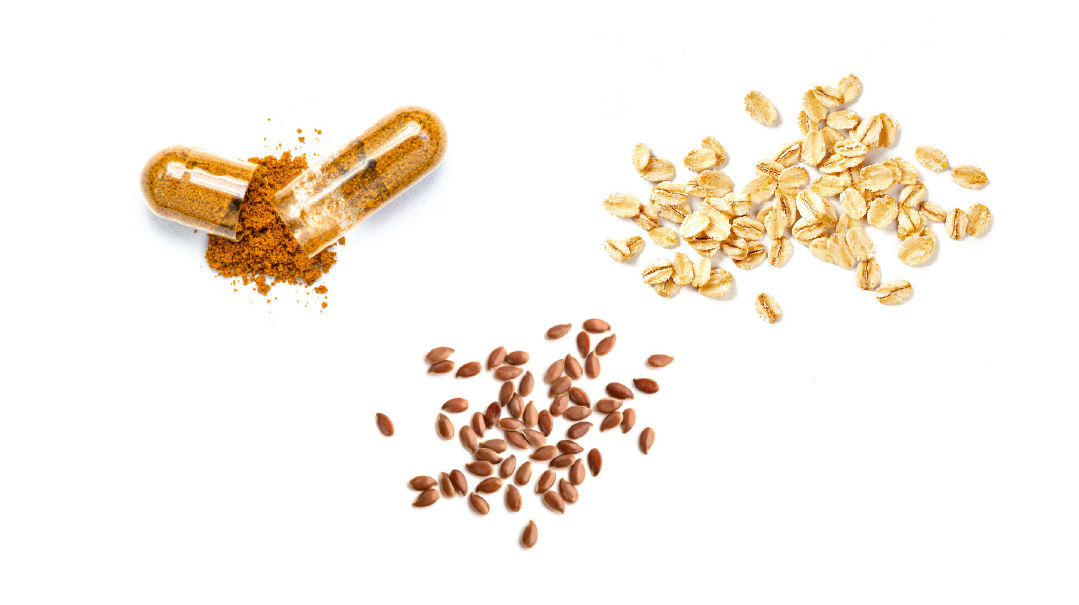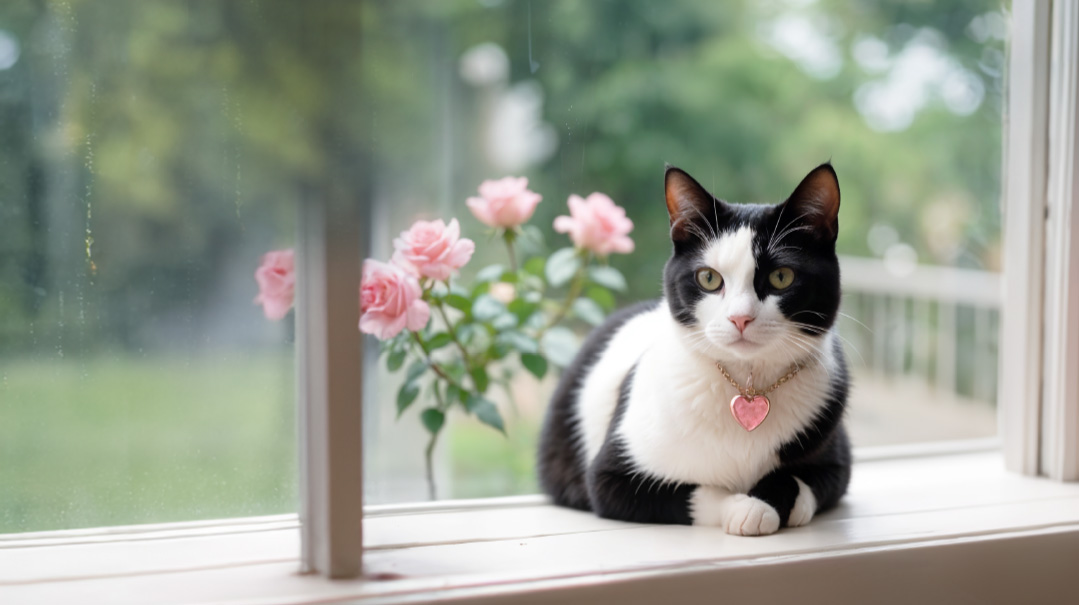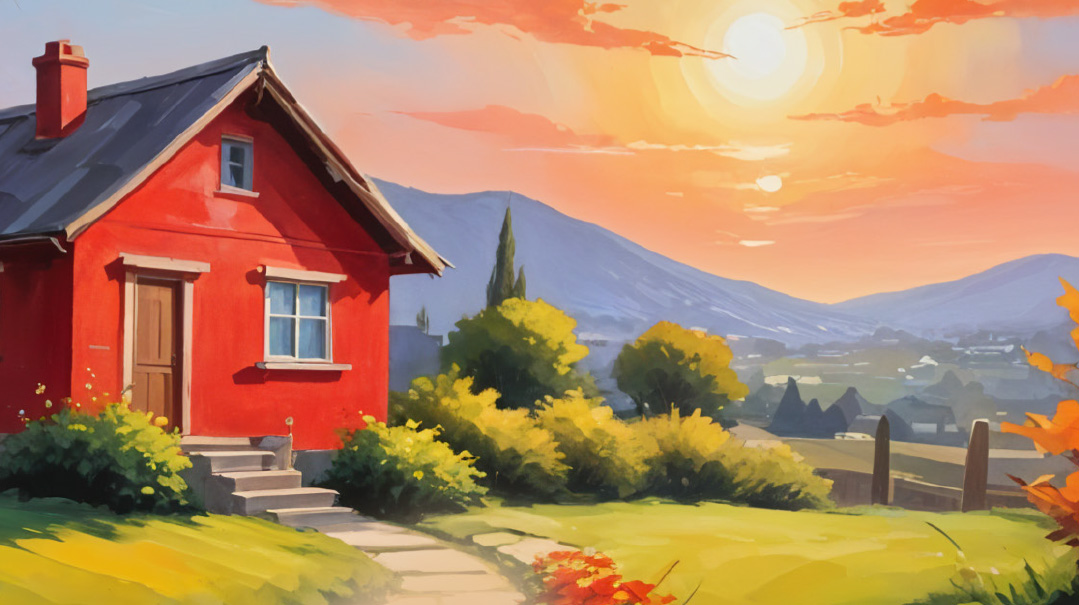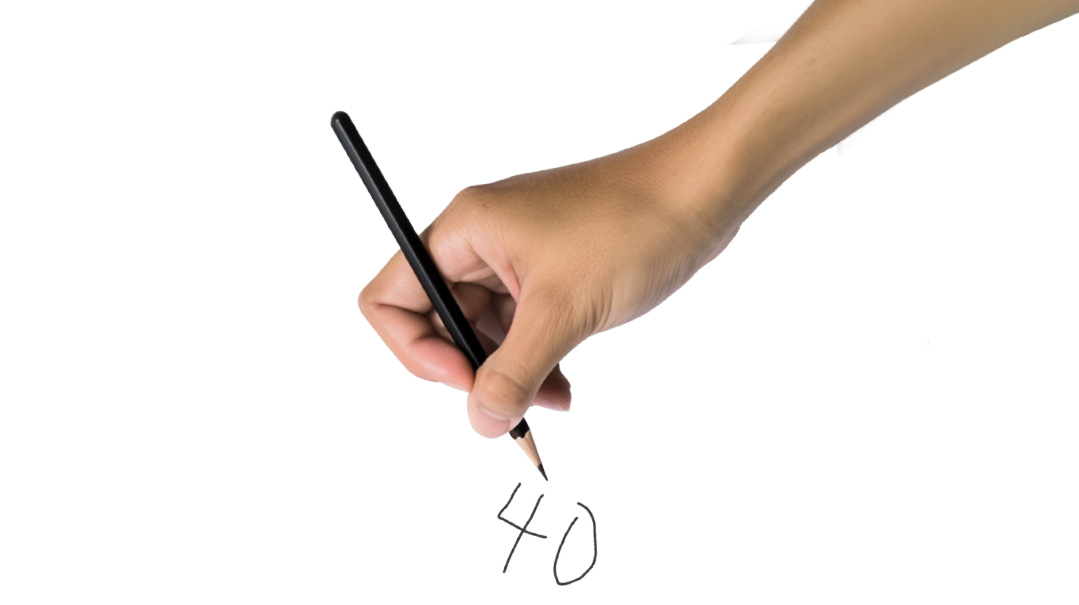Daddy’s Little Girl

Yes, a convert is still allowed to love his or her biological parents, something many Jews don’t realize

I never realized what a gift shivah was until my father died.
Since I’m a convert and my father wasn’t Jewish, I didn’t have that gift of shivah to mourn him. How I longed to dedicate an entire week to his memory, to cry, to laugh, to hold on to our close connection.
Instead, I had less than a day.
My father died on the morning of Isru Chag Pesach, a Thursday. I sat on the sofa and cried, and a few close friends called. But the next morning was Erev Shabbos, so I had to cook and prepare as if nothing had happened, as if my world hadn't just collapsed. And then Shabbos started, and then life just went on.
I never even got to say goodbye. Coronavirus took that from me. My father was taken to the hospital with pneumonia during Pesach, during the lockdown, and there were no flights, no trains, no possible way to get to England. I desperately tried travel agents who could offer me only insane flight combinations at insane prices that I couldn’t afford with stopovers in insane places like Addis Abba. I spent Pesach trying to be b’simchah while my heart was thousands of miles away in a hospital ward in Northern England.
Even if I had managed to get there, they wouldn’t have let me in to see him anyway — coronavirus regulations barred visitors from the hospital, even though he didn’t have coronavirus. His mind wasn’t clear due to the medication, and he must have been so confused, not knowing why his wife of over 60 years and his son didn’t come to visit him. And we couldn’t even speak to him on the phone — there was no reception in his ward.
The nurses told us he fell out of bed trying to get up and get dressed because he wanted to go home. But he didn’t come home. He died alone, who knows exactly how or when. And I never got to tell him how much I loved him.
And I did love him. Yes, a convert is still allowed to love his or her biological parents, something many Jews don’t realize. We give up our past life when we convert — I willingly gave up my home, my family, and the country of my birth. But we aren't commanded to sever all contact with the people who gave us life, who brought us up, educated us, and helped us to become the kind of thinking, truth-seeking people who find Judaism.
We do not have the mitzvah of kibbud av, but for the sake of kiddush Hashem and hakaras hatov, we have two very good reasons to stay on good terms with our biological parents. That’s the halachic justification — which every convert somehow feels that they have to give when they explain why they’re still in touch with their non-Jewish parents. But the bottom line is, yes, we do still love them, and we shouldn’t have to feel guilty about it.
My father was everything to me. We shared the same interests: a love of poetry and literature, of the countryside and hiking in it, of history and geography. And we shared the same personality — a typical Leo: fiery, stubborn, and often domineering.
I was my “Daddy’s little girl,” and I knew he was always there to protect me and save me no matter what. And now that he’s gone I’m orphaned, bereaved, bereft. No matter that I’m no longer a little girl and he wasn’t Jewish. He was my father and that’s all.
Because there were so many bodies, due to coronavirus, my father’s funeral was set for three weeks after his death. I had to go about my normal life here in Israel, while knowing all the time that my beloved father was lying alone in some freezer in England, waiting to be cremated.
The thought of cremation stabbed my heart each time I thought of it — which was often. How could they cremate my dear father? People bury their pets in their back yard, but your beloved father you burn?
Much as I wanted to protest, there was no point. In England today, the majority of people are cremated, and as my father wasn’t Jewish, I had no arguments to put forward. For the sake of peace in the family, I kept quiet.
I didn’t get to say goodbye to him before he died, but Hashem took pity on me and performed a miracle so I could at least say goodbye to him before he was laid to rest. In the end, the fact that the funeral wasn’t held until three weeks after my father’s death enabled me to be there. Just three days before the funeral, one airline suddenly, incredibly, decided to resume flights between Israel and England.
Due to the lockdown in both countries, there was no public transport to Ben Gurion airport, and only very limited service from the airport in London to my parents’ home in the north of England. Both Ben Gurion and Luton airport were deserted ghost towns, as if they were in mourning themselves.
I had to remain masked for the entire journey, there was no kosher food (or any food at all) available anywhere en route, and I had to sit alone on an exposed, cold railway platform throughout the night until the first train services began. But I didn’t feel any of these hardships. The only pain I could feel was my father’s loss.
I was so grateful to be there for the service (thankfully, a non-denominational, civil ceremony) to “commit” my father’s body at the crematorium. I read the poem I’d penned in my father’s memory, and I watched as the coffin was discreetly rolled behind the curtains, where the flames of the furnace awaited it. Disrespectful, degrading, disgusting, disgraceful, despicable.
The next day, having spent a bizarre night in the family home guarding the urn containing what was left of my father, I knelt on the damp earth of the cemetery and poured those gray ashes into the open grave. Unbelievable. Surreal. And excruciatingly painful.
The pain that I felt from not being able to sit shivah for my father was increased many times over by the fact that not only could I not sit shivah, but I also couldn’t do any of the other things traditionally done to elevate a Jew’s soul — saying Kaddish, lighting candles, learning Mishnayos, etc.
He wasn’t Jewish, so did he even have a soul? This question tortures a convert, never more so than when their non-Jewish parents die. Do they have a soul? Do they go to Gan Eden? If they don’t have a soul, then is that it, end of story? They’ve just vanished off the face of the earth?
In my pain I turned to daas Torah for the answers. The three poskim I turned to — one Sephardi, one Ashkenazi, and one dati-leumi — all gave me precisely the same answer (and one even troubled himself to find and quote to me the exact source on which his psak was based).
The deciding factor in all three rabbanim’s responses was the question as to whether or not the non-Jew was an oheiv Yisrael. And my father was certainly that. He had visited Israel often and loved both the country and its people. He always stood up for Israel and the Jewish people when — as was often the case in England — they were blamed for pretty much every major world problem.
In my father’s later years, he took to reading Jewish sources, without any persuasion from me. He had me buy him an ArtScroll Chumash, a sefer Tehillim with an English translation, a collection of Rabbi Nachman’s tefillos, and a number of Rabbi Pliskin’s books on serenity, patience, etc. He told me that he prayed every day for the peace of Israel. That’s what I call an oheiv Yisrael.
As the rabbanim explained to me, an oheiv Yisrael does have a soul (although different from that of a Jew), which remains after death, and can be elevated by our acts here on earth. I was told in very clear terms that it was both “mutar v’moeil,” permissible and beneficial, for me to do all those things that Jews do l’ilui nishmas their loved ones, for my father. My husband and sons could say Kaddish for my father, they could learn Mishnayos for him. I could light candles for him, and people could give tzedakah in his zechus.
And people did. My older sons said Kaddish for him. They weren’t in yeshivah, due to coronavirus, and the minyan was in the parking lot, but Kaddish is Kaddish wherever it is said. I met a sweet Sephardi friend in the supermarket who told me she was giving tzedakah every day in my father’s merit. And the boys in my son’s fifth grade class learned Mishnayos for him.
A very caring friend sent me a myrtle bush to be planted in my garden in his memory, which has provided me with great comfort every day. The simple act of watering it makes me feel close to my father. B’ezras Hashem in the future, the bush will be the source of the hadas for the mitzvah of arba minim. I was still devastated by his loss, but the knowledge that my father wasn’t gone forever and that I could still maintain a connection with him through my acts here, was a comfort beyond words.
It’s in part thanks to my father that I’m now Jewish. He taught me to always be honest and straight with others and with myself, to do the right thing no matter how hard it is, and to be determined, to never give up, and to fight for what I believe in. Partly due to those traits that he engrained in me so deeply, I’m now a shomer mitzvos Jew, responsible for the precious neshamos of seven Jewish children who learn Torah in purity and kedushah. And for that, he deserves to be remembered.
L’illui nishmas Michael ben Robert
(Originally featured in Family First, Issue 750)
Oops! We could not locate your form.







